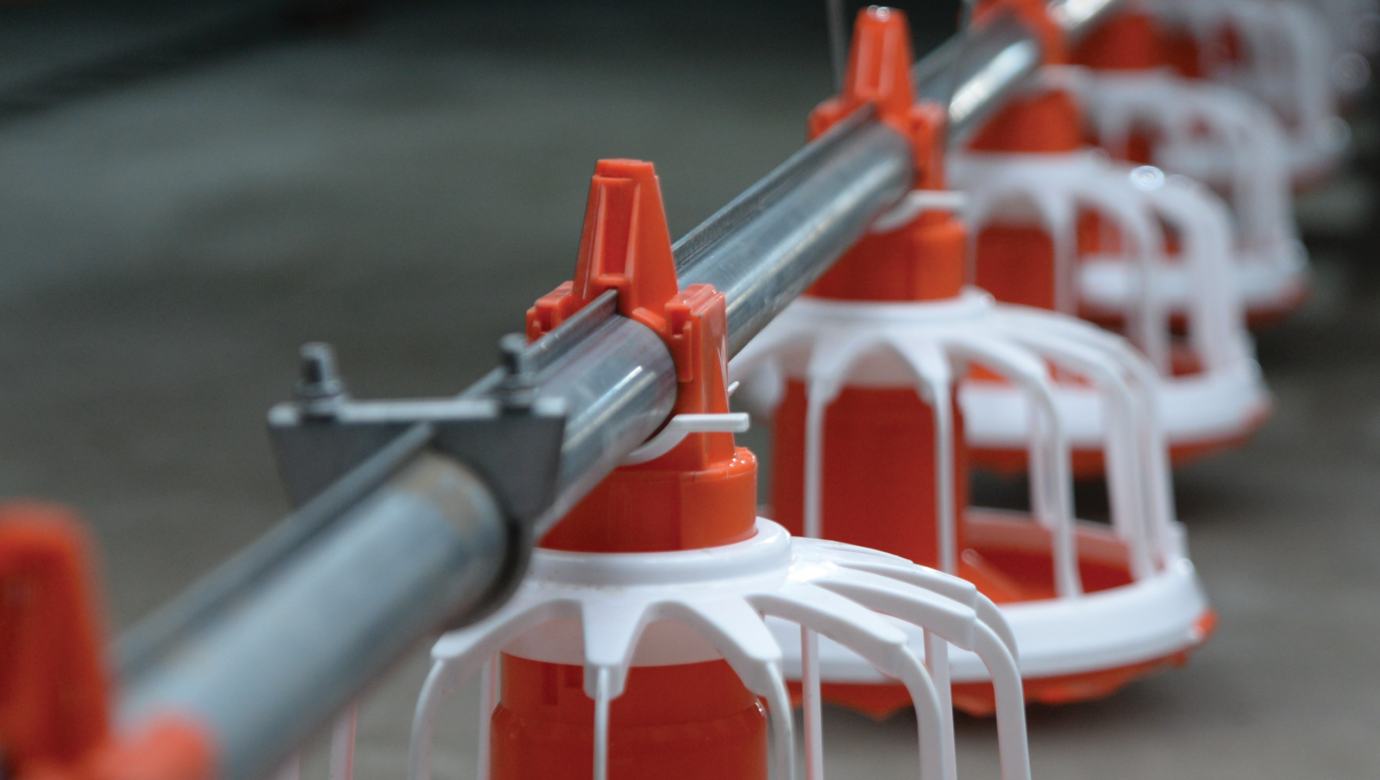The Hidden Risk to Health and Performance in Broiler Farming
While managing temperature and feed often gets the most attention, there’s a less obvious but serious problem that can affect broilers: too much moisture. High moisture levels in broiler houses can lead to health problems and decreased productivity, which is why it’s crucial to address this issue.
Moisture-related issues can cause multiple problems, including:
High Ammonia Levels
When there’s too much moisture, the manure in broiler houses doesn’t dry properly, leading to caked litter and increased ammonia levels. High ammonia can harm both broilers and humans. It can cause respiratory problems and reduce the health and performance of the flock.
Respiratory Problems
High moisture creates an environment where harmful microorganisms like bacteria, fungi, and molds can thrive. These can release spores and toxins into the air, causing respiratory issues in broilers. Birds may develop breathing difficulties and have reduced lung function, which can lead to slower growth and poor performance.
Heat Stress
Moist air makes it harder for broilers to cool down through evaporation, increasing the risk of heat stress. Birds that are heat-stressed eat less, gain weight more slowly, and may even die in severe cases.
Health Problems
Wet litter can cause footpad dermatitis and breast blisters. Birds exposed to damp surfaces may develop painful sores on their feet and breasts, leading to reduced mobility and a higher risk of infections.
Reduced Feed Efficiency
Broilers under stress from high moisture tend to use more energy to cope, resulting in lower feed efficiency. This means more feed is needed for the same weight gain, driving up production costs.
These problems don’t happen overnight. They usually develop over days or weeks, so it’s important to monitor moisture levels regularly. Addressing these issues early can prevent them from becoming major problems.
Three Ways to Control Moisture for Healthy Broilers
1. Manage Ventilation to Control Humidity
To keep moisture levels in check, proper ventilation is essential. Aim for a relative humidity between 40% and 60% to keep litter dry. This requires careful ventilation calculations based on the size of the house, the number of birds, their age, and the outside climate. Regularly check that fans and air inlets are working correctly and adjust ventilation as needed.
2. Fix Leaks in the Water System
Leaky drinker lines can add excess moisture to the house. Inspect water systems regularly to avoid leaks, which can cause wet litter and increase ammonia levels. A well-maintained water system ensures broilers get enough to drink without creating moisture problems.
3. Seal the House Properly
Proper ventilation only works if the house is sealed properly. Air should enter and exit through controlled points, not through cracks in walls or the roof. Poorly sealed houses force exhaust fans to work harder, increasing power use and costs. A well-sealed house maintains consistent ventilation and humidity levels.
Balancing ventilation, water management, and a well-built structure is key to reducing moisture issues and promoting healthy, high-performing broilers. Vision Intellect offers expertise in complete broiler production solutions to help create the ideal environment for both farmers and their broilers.

